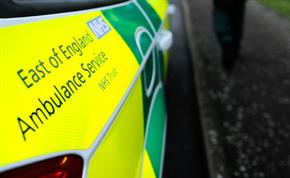
Chris Hartley, Communications Director
Communications. What is it and why is it important?
Well, whatever role we do in the Trust, we use communications every day – to engage and communicate with patients, colleagues, suppliers and partners. My team is responsible for helping people communicate with staff, volunteers, stakeholders and the media; advising colleagues on communication matters; managing the corporate social media accounts; running the website, intranet and Need to Know; delivering the Trust awards ceremonies; making content like videos and animations; organising patient meet-ups; and planning and implementing education campaigns - amongst many other things.
Last week we passed a major milestone for the Trust - on our facebook account we received our 10,000th like. And it won’t be long before we get past 20,000 followers on Twitter. Why is this important? Well it means that we can connect with the best part of 30,000 people directly (and then the hundreds and hundreds of people in their networks), whilst giving them an opportunity to engage with us back and ask questions. We can share important safety and self-care messages, give them an insight into how the ambulance service works, and the challenges our organisation and our staff face every day.
When this article is published I will be on an ambulance in Luton, tweeting about a shift. Not only does this help give the public a real-time insight into our service, but it is important for me, as a non-clinical member of staff, to see first-hand what we do every day. My team all take part in these ride-outs, and we have a programme lined up for the next year spread out across the patch – literally from Cromer to Watford. If you want us to ride out from your station, just drop us an email.
I recently completed the community first responder training and am now active in my home town of Tring. I have to say my first few calls created genuine panic in me – not knowing quite what I was going to be faced with when I arrived with the patient, and frantically going over in my mind the equipment I might need and how to perform the basics correctly. On each occasion there was great relief when the clinician turned up, and I learnt so much about how you manage that patient interaction, and most importantly putting them at ease. Again, the importance of excellent communication skills sprang into my mind, and the ability to take the heat out of a situation.
We are currently developing our reward and recognition programme for staff and volunteers. We do need to celebrate our people more; it is too easy to forget the difference we all make every day and so we will be introducing more ways to recognise each other and our work. Hand in hand with this is the work we do to promote the work of staff. Just last week we organised a patient meet-up in Longwater, where a mum had the chance to thank our staff who helped with a traumatic home birth. Next week we’re reuniting a Harlow team with a patient who was traumatically injured in a road traffic collision. Organising these is time consuming, but they are so important to highlight the work you do every day to help people in our community; thank you to everyone who helps our team in sorting these out. We now have an online contact form internally on East24 where you can reach our team; if you want to flag up a meet-up you’d like to support, have a suggestion about something useful to share here on Need to Know, or even want to tell us that you or your team are reaching a milestone, please do get in touch.
And finally, some of you may know that a member of my family needed our services recently. And when they needed help, you were there - providing rapid and excellent care from the EOC to the scene, and onwards to hospital. Without you I dread to think of what the outcome could have been. Thank you – and not just those who helped my family, but to everyone for doing this every day for patients across the region, or for working behind the scenes to make sure our ambulance service functions 24/7.
Have a good week,
Chris
Great work happens every day across our organisation, so our weekly leadership messages are going to start highlighting some of that from teams across the Trust.
Going forward, Chief Executive Robert Morton will share his updates once a month, with the other three weeks showcasing the senior leadership team at EEAST. Know a leader who would be interested? Please get in touch, we’d love to hear from you.
Published 23rd March, 2017